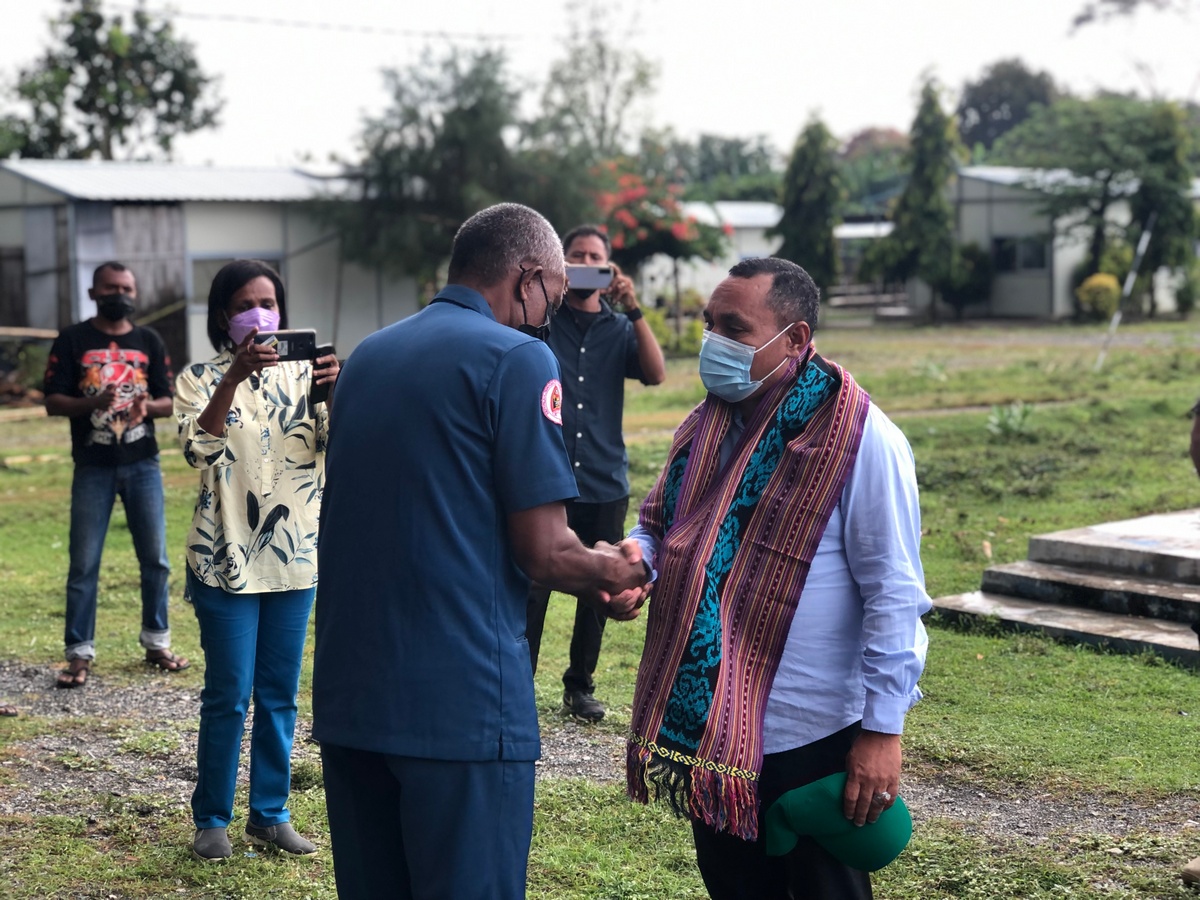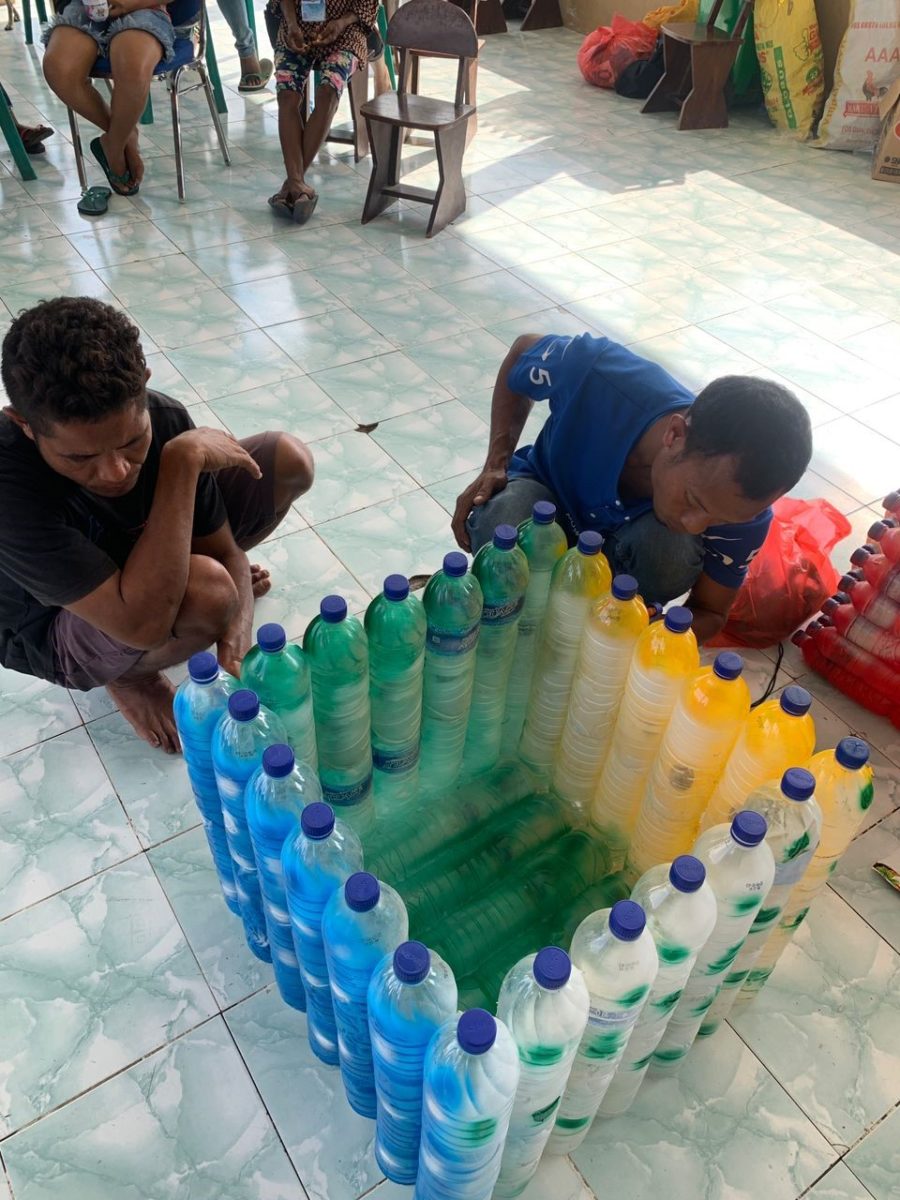Located on the south coast of Manatuto Municipality, Uma Boco is one of many coastal villages at risk from the impacts of climate change. Keeping in mind the need to conserve and protect the environment, the Ministry of Agriculture and Fisheries (MAF) of Timor-Leste and UNDP Timor-Leste organised three days of training in an awareness-raising campaign to improve waste management in the area.
Though home to only a small population and with little industrial development, according to the Asian Development Bank Timor-Leste produced nearly 70 tonnes of plastic waste per day in 2018. “We must keep our environment clean and free from pollution, because our household waste can pollute our seas and impact the habitat of our fish in the sea,” said Mr. Elidio de Araujo, who is State Secretary of Fisheries. “This training helps us to learn about the waste that destroys the ecosystem on land and at sea, teaching us how to transform waste into materials that can be reused in our daily needs and can increase our income,” he added.


Hosted from 23 to 25 September at Uma Boco Village in the Barique Administrative Post of Manatuto Municipality, the event was organised by the Ministry of Agriculture and Fisheries (MAF) of Timor-Leste and UNDP Timor-Leste as the National Coordination Unit for the ATSEA-2 Programme. Training focused on raising awareness on the values of biodiversity, engaging various elements of the local community – including youth and women’s groups – in conservation activities. A total of 30 participants from the Uma Boco Tribe were trained in plastic waste management at the household level, which included basic information on the types of plastics, along with demonstrations of how to upcycle plastic waste into products of greater value. The campaign on pollution management was facilitated by senior staff at the National Directorate of Fisheries and Aquaculture, MAF, Alda Sousa Lemos de Rosa.
Raising local communities’ awareness of the values of marine biodiversity and the steps they can take to conserve it ensures sustainable development and resiliency in the coastal areas. It helps to facilitate sustainable development and build greater resilience in the coastal areas, while also protecting coastal and marine ecosystems. The GEF/UNDP/PEMSEA ATSEA-2 Programme is committed to minimising anthropogenic pressures on ecosystems and biodiversity and contributing to restoring and safeguarding the health, livelihoods and well-being of coastal communities, considering the needs of women and children.
ATSEA-2 is committed to safeguarding the livelihoods and prosperity of coastal people, particularly in its transboundary areas, through the implementation of sustainable integrated concepts. In Timor-Leste, the project supports climate change adaptation in at-risk coastal villages in Barique Administrative Post, Manatuto Municipality. Since its inception in 2019, the Programme has been working to improve the quality of life of people in the ATS region through a combination of restoration, conservation, and sustainable management of coastal marine ecosystems.
(Dwi Aryo T)


